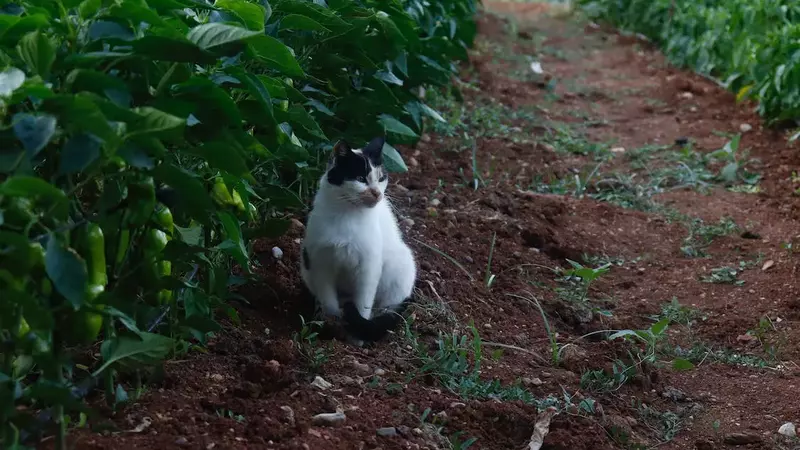Living on a farm can be a dream come true for many people who appreciate the tranquility and open spaces that rural life offers. However, it also comes with unique challenges when it comes to caring for your pets.
According to the American Farm Bureau Federation, less than 2 percent of the US population lives on farms. That being said, it’s still a large number of people living in these areas, and many of them have pets.
If you, too, live on a farm with your pets, here are a few tips for taking proper care of them:
Secure Your Property
Farmland often means expansive, open spaces, which can be both a blessing and a curse when it comes to pet care. It’s crucial to secure your property to keep your pets safe. For dogs, this means installing a fence that is tall and strong enough to contain them. Consider underground fencing if you want to preserve the scenic views without obstructing them with traditional fences.
Cats, on the other hand, may roam freely. However, they should still have a designated safe space, such as a secure outdoor enclosure or a well-protected catio. Additionally, be mindful of wildlife that could pose a threat to your pets, such as coyotes, foxes, or large birds of prey. Keep small animals indoors or closely supervised.
According to Iowa State University, per foot of fencing will cost you around $1.7 on average. The costs will vary greatly depending on the type of fencing material you opt for. It will also depend on whether or not you want the fencing to be made with electric or non-electric wires.
For larger animals like horses or livestock, sturdy fencing is essential to keep them contained and safe. Regularly inspect fences for damage and make repairs promptly to prevent escapes or injuries.
Avoid Toxic Pesticides and Insecticides
Your pet can end up anywhere on the farm, including the crop fields. When they do end up there, they will come in contact with your crops. Now, if these crops are laced with pesticides and insecticides, your pets might be in trouble.
These chemical products are often toxic in nature. Thus, it’s easy to see how dangerous they can be to your pets. Besides, as TorHoerman Law explains, some of these products are more dangerous than others. In fact, they’re so dangerous that even humans can be affected by them. Such products can do even more harm to your pets and their overall health.
As seen in the Roundup weedkiller lawsuit, people have been found to develop Leukemia due to Roundup exposure. As a result, anyone exposed to this weedkiller is currently on the hunt for the best lawyer for the Roundup lawsuit they can find.
The goal is for the Roundup victims to seek compensation for their losses and damages. In your case, avoiding the use of such pesticides and weed killers entirely is the best course of action for you and your pets.
Provide Adequate Shelter
Living on farmland often means dealing with extreme weather conditions, including scorching summers and harsh winters. Ensure that your pets have access to proper shelter. For dogs and cats, this could be an insulated doghouse or a cozy barn. Make sure the shelter is well-ventilated but protected from drafts. Provide plenty of clean, dry bedding to keep your pets warm in the winter.
Horses and livestock need appropriate shelter as well. A stable or barn with proper ventilation and insulation can protect them from extreme weather. Ensure they have access to fresh water at all times, and consider heated water sources during freezing temperatures.
Ensure Regular Veterinary Care
The Washington Post reports that the average annual household spending on pets is around $770 as of 2021. If you spend something similar to this on your pets, consider spending a good percentage of it on veterinary care.
Living in a rural area may mean longer distances to reach the nearest veterinarian. However, this should not deter you from providing your pets with regular veterinary care. Schedule routine check-ups, vaccinations, and dental care to ensure your pets stay healthy. Additionally, discuss with your vet the specific health concerns that can arise in a rural setting, like tick-borne diseases or exposure to agricultural chemicals.
Keep a well-stocked first aid kit for your pets and learn basic first aid procedures. In an emergency, having the necessary supplies and knowledge can make all the difference.
Don’t Ignore Exercise and Mental Stimulation
In a rural environment, pets often have more room to roam and explore, which is great for their physical and mental well-being. However, it’s essential to engage them in regular exercise and mental stimulation. Dogs, in particular, benefit from daily walks, playtime, and interactive toys.
Cats should have opportunities to climb, scratch, and explore their surroundings. Consider creating a cat-friendly outdoor space with trees and platforms for climbing. For horses, regular turnout in a paddock or pasture is crucial for their physical and mental health.
Conclusion
Living on a farm can be difficult on its own. Having to take care of pets and keeping them safe and healthy adds to this difficulty. However, by sticking to the tips discussed above, doing so won’t be as difficult as it initially seems. Just have a bit of patience and get all the help you can afford. That way, you can raise your pets with utmost care on your farmland.
